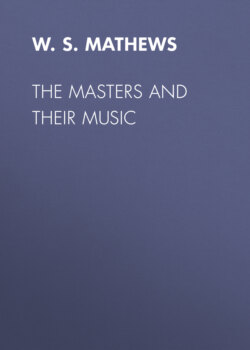Читать книгу The Masters and Their Music - W. S. B. Mathews - Страница 38
На сайте Литреса книга снята с продажи.
JOHANN SEBASTIAN BACH.
ОглавлениеBorn March 21, 1685, at Eisenach.
Died July 28, 1750, in Leipsic.
Johann Sebastian Bach was the son of the city musician of Eisenach, and a descendant of about ten generations of musical Bachs. His father having died when the boy was young, the latter's brother, Johann Christoph, gave him lessons for some time, after which he studied with other masters of considerable celebrity, and at the age of seventeen he was engaged as violinist in the private orchestra of Prince John Ernst, of Saxe-Weimar. He held this place, however, for but a few months, leaving it to accept a more desirable one as organist in the new church at Arnstadt. During the time he held this position he made several journeys on foot to Lübeck to hear the famous Buxtehude play, and later paid the same compliment to another eminent organist. The most important of the early positions which Bach held was that of director of chamber music, and organist to the Duke of Saxe-Weimar, and here, after seven years' service, he was made chief concertmeister. In 1717 he left Weimar to accept a position as musical director at Köthen, where he had a better opportunity to express himself with orchestra. In 1723 be became cantor of the St. Thomas School at Leipsic and music director of the university, as the successor of Johannes Kuhnau. In this position he had the direction of the music in the St. Thomas Church, where he had at his disposal an orchestra, organ, and two choirs, besides which he trained the school-children. He here wrote an enormous amount of church music, consisting of a very large number of cantatas for church service, of which first and last he seems to have produced five entire series for every festival Sunday in the year. These cantatas were short oratorios consisting of choruses, solos, recitatives, instrumental movements, and were frequently of considerable elaboration. Many of them are now lost, but a very considerable number remain. He also composed five oratorios for the Good Friday season—Passion music—of which three yet remain, the most famous one being the "St. Matthew's Passion."
